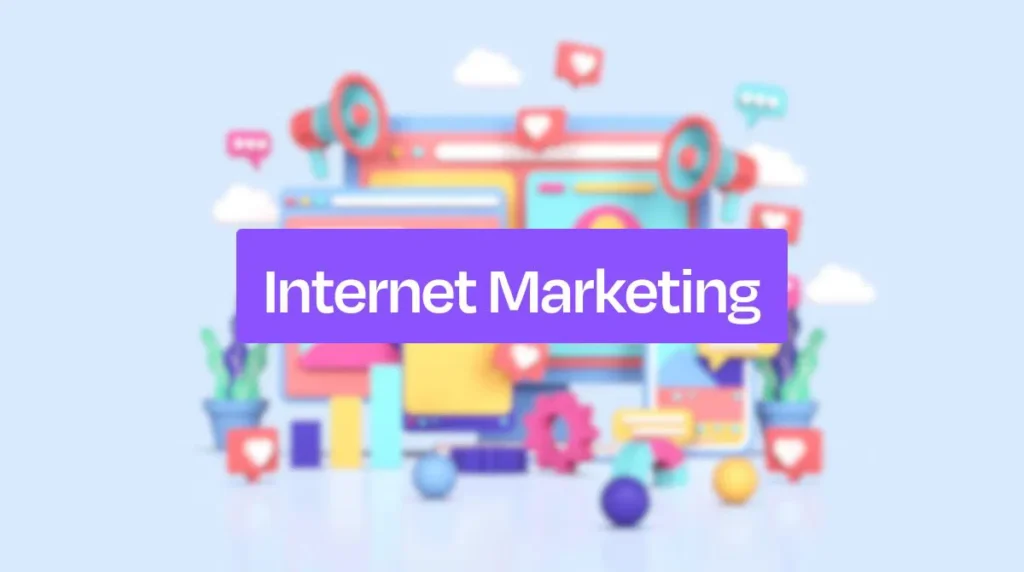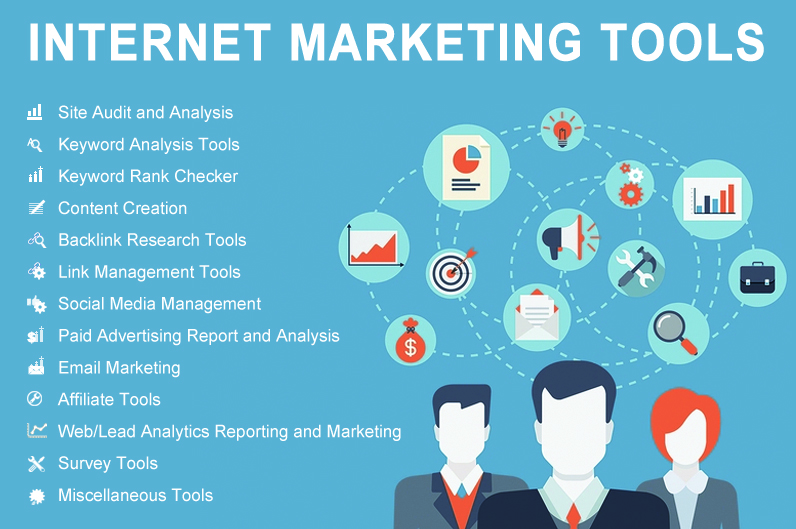How Internet Marketing Works: Everything You Need to Know

In an age where digital screens dominate our lives, Internet Marketing is no longer optional—it’s essential. Whether you’re a small business owner, an aspiring digital marketer, or an entrepreneur building a global brand, understanding how internet marketing works can transform your success. Many learners even begin their journey through structured Digital Marketing Courses in Ahmedabad, where they gain practical skills and industry-ready expertise.
In this comprehensive guide, we’ll explore what Internet Marketing really means, how it works, the most powerful strategies to use in 2025, and how you can put it all together to grow your business or career with a strong focus on Smart SEO Budgeting to maximize results without overspending.
What Is Internet Marketing?
Internet Marketing, also known as online marketing or digital marketing, refers to the practice of promoting products, services, or brands over the internet using a combination of content, technology, and platforms to reach and engage audiences.
If you’re looking to build expertise in this field, consider enrolling in digital marketing training in Ahmedabad to get started with practical, industry-relevant skills. It includes a wide array of strategies such as:
- Search Engine Optimization (SEO)
- Social Media Marketing (SMM)
- Email Marketing
- Paid Advertising (PPC)
- Content Marketing
- Affiliate Marketing
- Video Marketing
- Chatbots and Automation
- Predictive Analytics
Internet Marketing allows businesses to connect with consumers directly, gather meaningful data, and deliver customized experiences in real-time.
Why Internet Marketing Is Crucial in 2025
More than 5.5 billion people worldwide are active internet users. From checking emails and watching videos to online shopping and social networking, the internet is now the default medium for information, communication, and commerce.
Here’s why brands are doubling down on Internet Marketing:
1. Cost Efficiency
Compared to traditional marketing (TV, print, radio), digital marketing channels offer better cost control, performance tracking, and return on investment (ROI).
2. Consumer Behavior Shift
Today’s customers are mobile-first, search-driven, and socially influenced. Meeting them where they already spend time online is simply smart business.
Key Components of Internet Marketing

Let’s now explore the core pillars of Internet Marketing and how each can contribute to your overall strategy.
1. Search Engine Optimization (SEO)
SEO is the process of optimizing your website and content to appear higher in search engine results pages (SERPs), especially on Google.
How SEO Works:
- Keyword Research: Identify terms your target audience searches using tools like Google Keyword Planner, Uber suggest, Ahrefs, or SEMrush.
- On-Page SEO: Optimize titles, headers, content, and meta descriptions for these keywords.
- Technical SEO: Ensure your site is mobile-friendly, fast-loading, and has proper URL structures and schema markup.
- Backlink Building: Earn links from high-authority domains to increase your credibility.
Example: An online shoe retailer optimizing for “buy sports shoes online India” can attract high-intent traffic and boost sales organically.
2. Social Media Marketing (SMM)
Social platforms like Instagram, Facebook, LinkedIn, Pinterest, and TikTok are more than social marketing powerhouses.
Benefits:
- Free exposure via posts and reels
- Paid ads with detailed targeting
- Real-time engagement with your audience
- Influencer collaborations
Use Case: A bakery in Mumbai posts daily reels on Instagram featuring cake designs and offers, converting followers into loyal customers.
3. Email Marketing
Email remains one of the highest-ROI digital channels with some studies reporting $36 returned for every $1 spent.
How to Get Started:
- Create lead magnets (eBooks, checklists, coupons)
- Add sign-up forms to your website
- Segment your list by demographics and behavior
- Send tailored content: newsletters, promotions, reminders
Tip: Use platforms like Mailchimp, Active Campaign, or Sendinblue for automating and analyzing email campaigns.
4. Content Marketing
Content marketing is the art of creating valuable, informative, and engaging content that attracts and retains your ideal audience.
Formats Include:
- Blog posts
- Whitepapers
- Infographics
- Podcasts
- Webinars
- Quizzes and Polls
Goal: Build trust, demonstrate expertise, and guide readers through the sales funnel.
Example: A fitness coach writes weekly blog posts on weight loss tips and promotes online coaching via lead magnets and email automation.
5. Paid Advertising (PPC)
Pay-per-click ads on Google, Facebook, Instagram, YouTube, and LinkedIn allow you to quickly drive traffic and conversions.
Advantages:
- Instant visibility for new products or offers
- Laser-targeted audience reach
- Real-time tracking and analytics
- Flexible budgets
Pro Tip: Always A/B tests different creatives and audiences to find the best-performing combination.
6. Affiliate Marketing
Affiliate marketing lets you turn other content creators into your sales partners. You only pay them when they bring in results (leads or sales).
Steps:
- Set up an affiliate program using platforms like ShareASale, Impact, or Rakuten
- Provide tracking links and creative assets
- Pay commission per successful conversion
Example: SaaS platforms like Grammarly use affiliate programs to reward bloggers and YouTubers for signups.
7. Video Marketing
Video has become the most consumed content format online. From short-form Reels to explainer YouTube videos, video helps brands entertain, educate, and convert.
Tips:
- Keep videos short, punchy, and value-packed
- Use subtitles for accessibility
- Add strong CTAs at the end
Stat: Video marketers get 66% more qualified leads per year compared to those who don’t use video.
8. Marketing Automation
Automation takes repetitive tasks off your plate and ensures consistent brand presence.
Tools You Can Use:
- Hootsuite/Buffer: Schedule social posts
- HubSpot/Marketo: Automate email marketing workflows
- Zapier: Connect apps like Google Sheets, Slack, or Gmail
Use Case: Create an onboarding email series that automatically goes out to new subscribers or customers.
9. Chatbots and Conversational AI
Today’s consumers expect 24/7 support and chatbots deliver just that.
Use Cases:
- Instant answers to FAQs
- Collecting lead information
- Guiding users through purchases
- Customer feedback collection
Brands like HDFC Bank use WhatsApp bots for account updates, loan queries, and service requests.
10. Predictive Analytics & Big Data
With tools like Google Analytics 4, Hotjar, and AI-powered CRMs, marketers can now predict user behavior and customize experiences before the customer even acts.
Uses:
- Forecasting which campaigns will convert
- Identifying churn risks
- Sending personalized content recommendations
Example: Amazon’s product recommendations use predictive algorithms that track browsing behavior, purchases, and interests.
Skills You Need to Succeed in Internet Marketing
Being an effective internet marketer means having both creative instincts and data-driven thinking. Here’s what sets successful marketers apart in 2025:
- Analytical Mindset – Ability to interpret campaign data, traffic reports, and user behavior.
- Storytelling Skills – Crafting messages that emotionally resonate.
- Technical Know-How – Understanding of platforms, tools, and code basics.
- Adaptability – Internet marketing trends evolve fast marketers must pivot quickly.
- Empathy – The best marketing solves a real user need.
Tools Every Internet Marketer Should Know

To streamline your efforts, here are some top tools to keep in your arsenal:
- Google Analytics – For traffic analysis
- Ahrefs / SEMrush – For SEO
- Canva – For content creation
- Meta Ads Manager / Google Ads – For PPC
- HubSpot / Active Campaign – For CRM and email
- Notion / Trello – For planning campaigns
- ChatGPT – For content ideation, SEO suggestions, and marketing automation help
Tips to Get Started with Internet Marketing
If you’re just beginning your internet marketing journey, here’s a roadmap to follow:
- Define Your Audience: Who are they? What are their goals and pain points?
- Set SMART Goals: Specific, Measurable, Achievable, Relevant, Time-bound.
- Pick Your Channels: Don’t do everything at once start where your audience already spends time.
- Create a Content Plan: Build a monthly calendar of blogs, videos, or social media posts.
- Test and Improve: Launch, measure, and optimize consistently.
Final Thoughts
Internet Marketing is no longer the future it’s the now. Whether you’re growing a startup, promoting a personal brand, or managing a global business, the right digital marketing strategy can amplify your voice, boost sales, and build loyalty in ways traditional marketing never could. And it all starts with having a strong online presence because a Website Is Essential in 2025 for visibility, credibility, and long-term growth.
It’s time to stop guessing and start growing strategically, smartly, and successfully.
Looking to master these skills? Enroll at a trusted digital marketing institute in Ahmedabad to kickstart your journey.